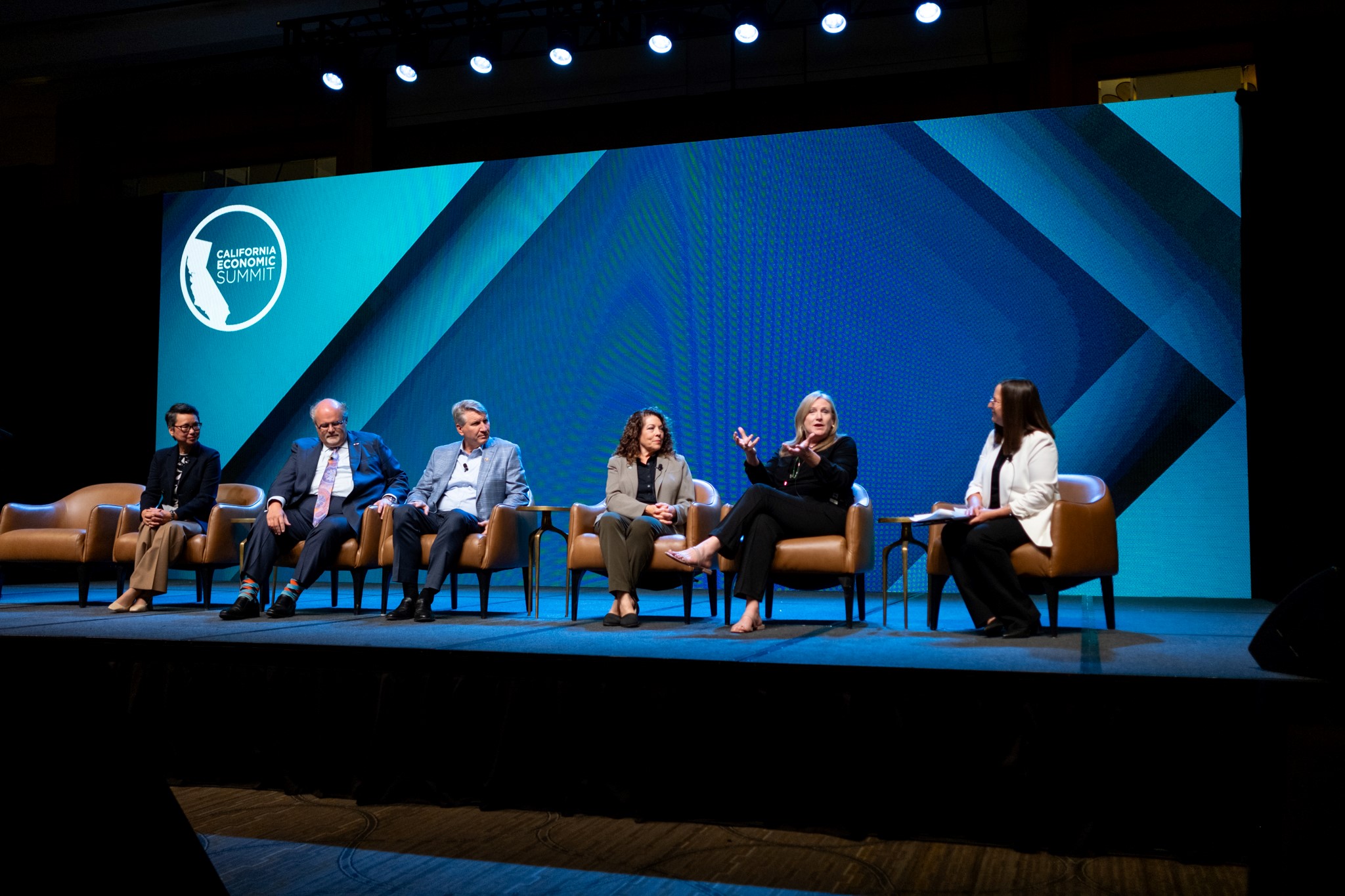Coachella Valley healthcare executives joined with statewide leaders at the CA Forward Economic Summit (October 11-13, 2023 in Indian Wells) to discuss a new collaborative model designed to increase the number of nurses and allied healthcare providers that live and work in the Coachella Valley.
The bottom line: There are about 2,700 registered nurses employed at the Coachella Valley’s three local hospitals – and 500 openings for nurses each year. To fill the gap, our local colleges produce only 50 annual graduates. The rest of the RN openings are filled with contract registry nurses, at about four times the cost.
The opportunity: Workforce development is a team sport. In that spirit, local healthcare employers are working in collaboration to solve the near-term need for more nurses and create shared strategies for the future via the Coachella Valley Healthcare Workforce Roundtable. The solution includes braiding federal, state, and local investment to build capacity and expand access for local students, including funding from California Jobs First (formerly CERF), focused on those working in communities traditionally left behind to ensure that equity is embedded in any plan moving forward.
Read more:
Workforce issues in the Coachella Valley pretty much mirror what’s happening in the state and nation; the demand for physicians, specialty physicians, advanced practice providers, physical therapists, and RNs is high in the Coachella Valley.
Thinking about the learner who is in the Coachella Valley and thinking about not just them as the future workforce, but what they need in terms of a wraparound sort of education to be able to get to that workforce. The workforce needs locally to look like the state and nation. We all know that our health outcomes and equity and access are directly related to a culturally competent and responsive workforce.
The local student population is in high poverty. About 82% are on free and reduced-price meals, 30% in poverty. Local students are oftentimes first-generation students who need a lot of support all across their pipeline from K-12 into college and into the workforce in order to be ready and to have confidence, competence, and feel like they have the power to be able to be the change for the future.
The roundtable group came together as a result of a local discussion taking place across the last couple of years around workforce shortage, specifically 75% of the healthcare workforce challenge right now is RNs. So the roundtable looked at the numbers, with 2,700 RNs employed at the three hospitals locally, 20% are contract registry RNs. That’s not sustainable. It is a problem from many perspectives, including from the financial perspective, but also continuity of care.
The local healthcare leaders have made a common commitment to be about employer-led change Instead of waiting for the education system to put out the pipeline.
“Each of us is trying to increase the access to care, and you increase the access to care by hiring more nurses and more healthcare providers,” Desert Care Network’s Linda Evans stated. “And how do we collectively work together as a region to combine our efforts and co-invest to create a pay-it-forward pipeline of nurses that mostly are local?”
This approach is very different than the traditional approach where the schools put out nurses and the healthcare providers try to help pay for tuition and then compete to hire them. Instead, the providers work together to identify what is needed to fill the gaps in training.
Do they need to help fund instructors? Do they need to allow rotations and nights and weekends when this is a traditional Monday through Friday kind of session? And, they are looking at both the internal as well as the external opportunities; internal opportunities mean the upskilling of their own staff.
How do they take CNAs and LVNs who want to become RNs, allow them to still work, still provide for their family, and provide them training opportunities, tuition reimbursement, and whatever it takes to help them get to that next level?
Eisenhower’s Ken Wheat acknowledges this isn’t just a local problem. “We’re trying to start here with this collaborative to address the challenge locally and try to get some momentum to increase staffing in the near term and create a path to a long-term solution,” he stated.
In 2022, with the demand spike and services, local hospitals saw the cost of contract labor go from $20 million to $85 million in one year – an almost a fourfold increase.
“Unless we start to really address this clinical workforce need and address it with all of us involved, we can’t solve it,” Wheat explained. “Eisenhower can’t solve it. Desert Care Network can’t solve it. IEHP can’t solve it. Hopefully, together we can make a difference.”
Amy Kaufman, the panel moderator emphasized the fact that organized ecosystems are magnets for state investment.
“In the healthcare area, there is $1.7 billion in monies flowing through to healthcare occupations,” she stated. “So, $70 million to help with nursing, $41 million to help with primary care doctors, $187 million for behavioral health, $16 million for health workforce pipeline development – all that could be braided with state strong workforce funds.”
Locally, the region also holds many other funds that can fill in the blank in terms of scholarships, loan repayment, training, site expansion, faculty hiring, faculty supervision, apprenticeships, and career awareness. But it is very difficult to see results if they all flow in a silo. Collaboration on the ground becomes a magnet for all of those funds to be braided together to address local priorities.
CA Forward Economic Summit local workforce panelists included:
- Sheila Thornton, President and CEO, One Future Coachella Valley
- Linda Evans, Chief Strategy Officer, Desert Care Network
- Ken Wheat, Executive Vice President and Chief Operating Officer, Eisenhower Health
- Jarrod B. McNaughton, CEO, Inland Empire Health Plan
- Van Ton-Quinlivan, CEO, Futuro Health
- Amy Kaufman, Talent Strategies (Moderator) facilitating strategy for One Future Coachella Valley’s Healthcare Workforce Leadership Roundtable




